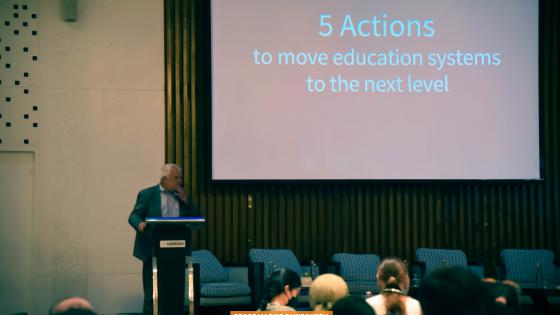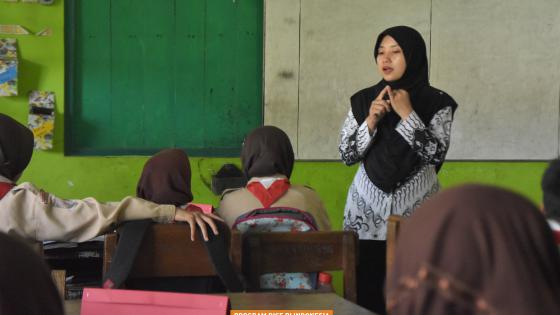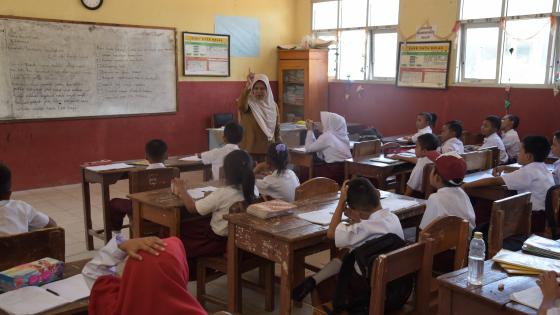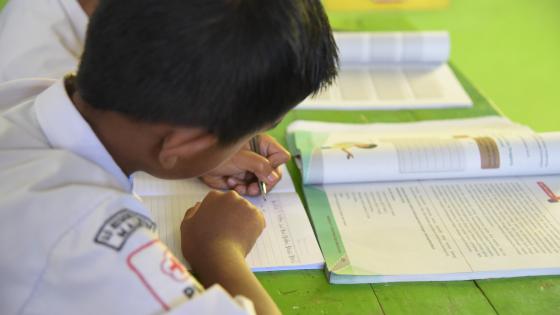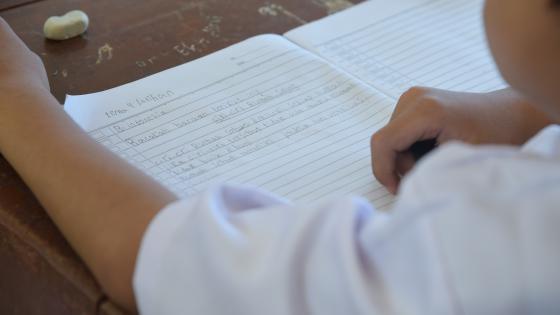Photo illustration: Tony Liong
This article is part of the Teacher's Note series on beginning teacher's greatest challenge in teaching.
Beginning teachers are often seen as creative, innovative teachers who are good at using the latest technologies. Such assumptions are sometimes true, and sometimes they are not. Due to these assumptions, beginning teachers have to keep on learning to become quality teachers. High hopes are resting on these young teachers' shoulders.
Beginning teachers also often have a different way of teaching compared to their senior counterparts. They can deliver fun, contextual, and updated instruction. In class, I try to engage students to create active learning.
I direct students to actively seek, explore, and develop information until they understand. A teacher only acts as a facilitator in learning. Teacher applies various appropriate techniques, methods, and strategies in managing learning in the classroom, and use various learning media to help students understand.
The challenge in teaching comes from the local government who demands evaluation that is often inconsistent or entirely different from the provided material concept or curriculum. For example, according to the 2013 Curriculum, we use thematic learning, which means we combine lessons into a theme to allow students experience contextual learning. However, in my area, the evaluations for the mid-semester assessment (PTS) and the final semester examination (UAS) do not follow the thematic format, but are divided by subjects, similar to the previous curriculum (KTSP). This inconsistency naturally confuses students when they have to study for the PTS or UAS. Parents have protested against the evaluation concept because they are struggling to help their children study at home.
In response to these circumstances, I inform the students about the division of subjects from the beginning of learning. I also intensify the deepening of materials relevant to the themes, if the time allows, and discuss more with the students.
My approach made students understand more about the division of materials for each lesson. Of course, I still conveyed parents’ complaints about PTS and UAS evaluation systems to the school principal.
As a beginning teacher, one must have the courage to express one’s opinion and be creative. Beginning teachers must continue to learn independently, either by reading books or taking other steps, such as networking to gain more discussion partners or exchanging experiences. Beginning teachers can also attend trainings or seminars with themes relevant to education to add insight and skills.
*This Note was written by UDA, a primary school teacher in Central Java.
**All articles published in the Teachers' Notes are the views of the authors. They have been edited for popular writing purposes and do not represent the views of RISE Programme in Indonesia or RISE's funders.


